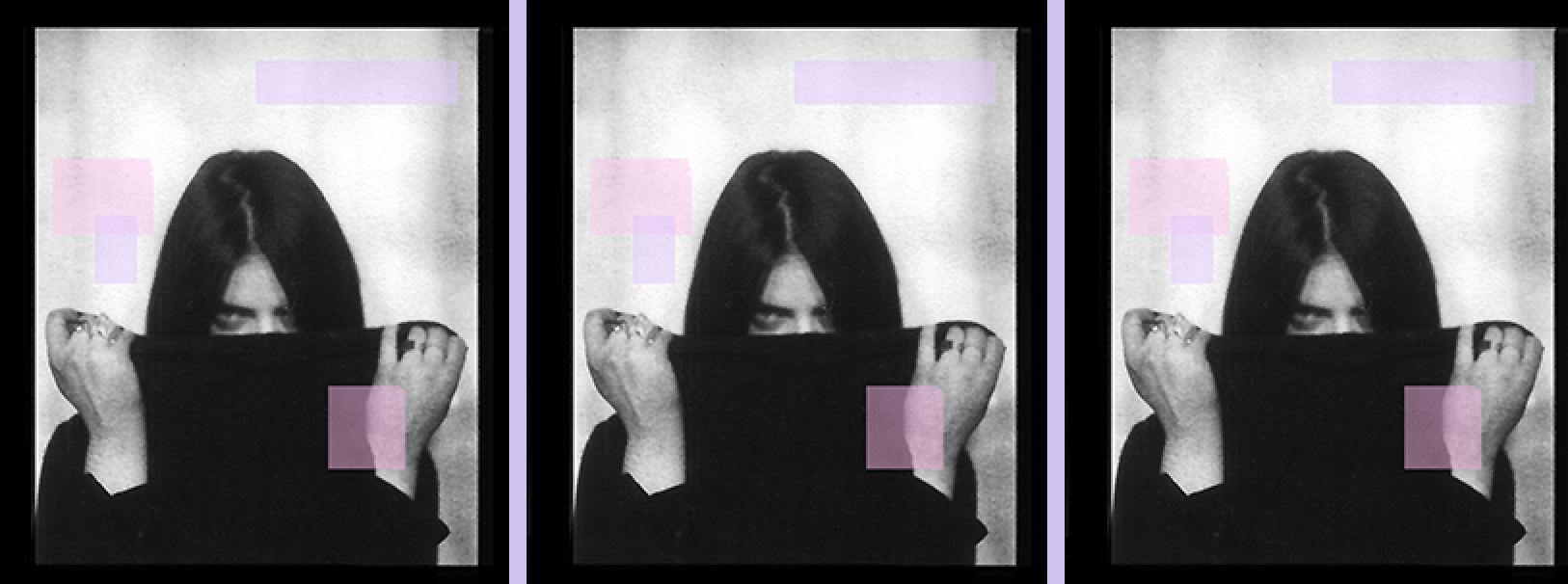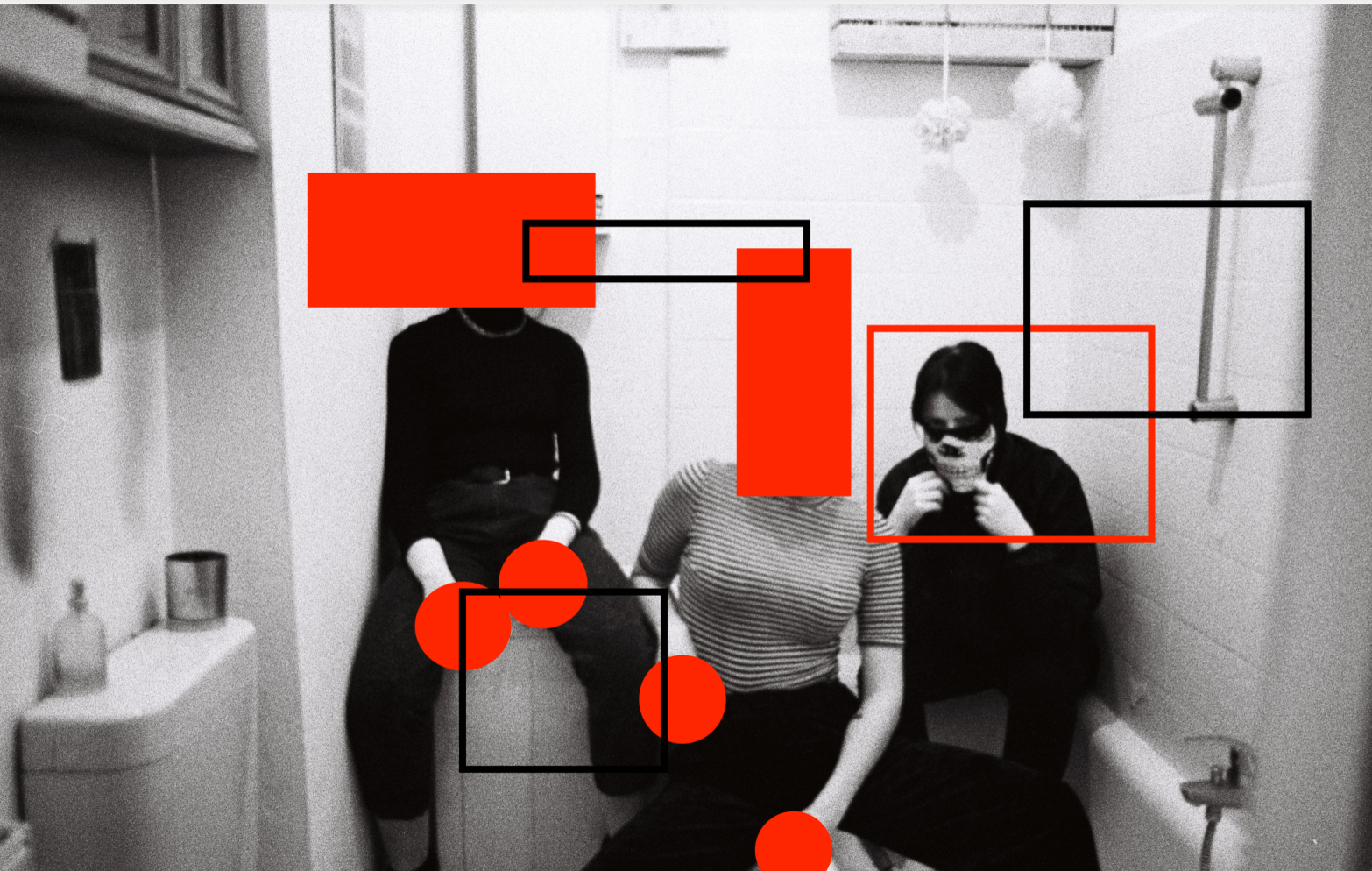Get Familiar: Machine Woman
Anastasia Vtorova talks about her route into electronics, her noise background, and soaking up influences from everywhere.

Get Familiar: Machine Woman
Anastasia Vtorova talks about her route into electronics, her noise background, and soaking up influences from everywhere.

Anastasia Vtorova has an inquisitive mind. As Machine Woman, this musician from St. Petersburg, Russia transmutes her musical curiosity into wildly varied and experimental electronic music free from simple stratification.
Since 2014, she has been emitting her strange and compelling sounds into the world. Vtorova’s first available tracks were on underground cassette releases such as Pink Silk and the split release with Famous Moon King, Ono Famous Machine, and in the intervening years, she’s amassed a huge stockpile of tracks. More recently, she’s appeared on the label Peder Mannerfelt and subterranean noise bastion Where To Now? Her For Sweden EP contained the creeping, creepy 4/4 of “Very Kind Human Being”: all scrapes, hisses and eerie tones, like feeling your way down a dimly-lit tunnel pursued by someone or something. The same release contained the sound art/IDM breaths and clipped field recordings of “Liquid Metal.” Another release, the superb Genau House, imported her weird energies and crackly percussive originality into lush dub techno.
Machine Woman’s latest EP, When Lobster Comes Home is out through Ninja Tune’s underground club-orientated sub label Technicolour and should expose her reverberations more widely. The lead cut, “Camile From OHM Makes Me Feel Loved,” with its blissful chords and crunching beats, has been praised — and played — by Ben UFO among others. We spoke to Vtorova while she was on holiday in Latvia, and in a reflective mood, about her route into electronics, her noise background, and soaking up influences from everywhere.
Machine Woman will be playing this weekend at ELSE in Berlin alongside Route 8,TRP, and some more of the Lobster Theremin family. More information here.
How did you get into electronic music?
I got into it a long time ago in London, mostly when I was playing in punk and experimental noise bands. I was getting bored and I stopped enjoying it. Bands used to look for a female bass player, and I was in a lot of those bands. I started looking for something a little bit different and on Last FM I found electronic experimental sounds. I picked up proper Ableton lessons when I was still in Goldsmiths, University of London. I did evening classes once a week. That’s what really started me making electronic music more, and different kinds of stuff.
“Sometimes a mistake can be something very beautiful.”
It’s interesting you say you’ve played in noise and punk bandsbecause I can hear that punk essence coming through in the music.
That’s nice to hear. What you start with will come through in what you do later on. Even if you progress and find new ways, it’s still how you learned music that will be with you for the rest of your life. I don’t have a musical education or anything like that. Being in noise bands gave me more confidence to try other things, like electronic music especially.
I think of music production as a game. I enjoy it and it’s a lot of fun. If you see something as technology or as a task, suddenly it’s no longer enjoyable. You’re afraid to make mistakes, but the best thing to do is make mistakes. It’s a learning process for anyone who wants to learn something new but also, you find yourself through mistakes. Sometimes a mistake can be something very beautiful.

What do you use to produce your stuff now?
I do a lot of different things now, and I still experiment on a daily basis. I can take an application on my phone and mess around when I’m on the train, to see what ideas I can put down, or record a sound, someone talking, to maybe turn into drum samples later on. But lately, I’ve started getting into hardware more, drum machines and synthesizers. I still have lots of pedals left from playing bass guitar, so a lot of stuff comes from there. There’s a Yamaha sampler I’ve bought, it’s super old and has five seconds sampling time. I’m building up. Sometimes it could be a 12-hour session just on the computer, sometimes it could be a couple of hours on the bass guitar.
They all offer different methods of creating.
Every time I listen to music, if I find something interesting, I write to people and say, “Do you mind sharing how you made it?” It’s nice to find out that everyone produces music very differently. It’s so interesting. Even with Ableton, I’ve been using it for three or four years, and every day there’s something new, new plugins, new samples, but also the software gets updated. I remember trying Reason a few years back before I even started making electronic music and thought, “This is so hard.” A few years later when I tried it again, I thought it was very interesting. Reason has a very specific sound. It’s harder, like gabba compared with anything else. There’s Logic, which is quite different, but Ableton there’s something about. Maybe it’s an easy way to start and create and go further. It’s very user-friendly software.
Some of your recent productions are more house and techno-based than your earlier experimental sound. What has prompted that change?
In a day I listen to everything. I could start with listening to jazz in the morning, super fast gabba in the middle of the day, to some new demos that people send me. At the end of the day, I might listen to Alva Noto’s early stuff, which is very slow and experimental, to Boney M, to classical music, to Soviet Union stuff. At the moment I just want to experiment and go in a more dancey direction. The last show I played was all 142bpm, stuff I produced recently, and I was like, “Wow, this is the most enjoyable thing I’ve done in a year.” So maybe now all my sets are going to be 142bpm and faster. It’s happy, fast, hardcore, techno, and Soviet house. It has some vocal samples, which I’m really into at the moment. I record a lot of my own voice in and make it sound like a machine.
On your new When Lobster Comes Home EP for Technicolour, you’ve included a track called “Camile From OHM Makes Me Feel Loved” about the Berlin club and Camile who works there. What is the story behind that?
One time she helped me out; she was very kind to me. She looked after me. That club is something so special, unique. I remember visiting the club for the first time in 2013. When we first went there I think it was called Shift. The whole place seemed like something magical. It was very free, there were no bouncers on the door, just a door person. It’s next to Tresor, kind of part of it, but with a separate entrance. It’s also tucked away, so you wouldn’t know it’s there. You go in and you feel the atmosphere and the freedom of music. My friends and I went every day to that club ’cause we just fell in love. Every day we heard different music. It’s music orientated, not about being seen. There’s no attitude. To me, this is a true clubbing experience.
One of your new tunes is called “But It Was Like 30 Intros in a Row.” Are you amused by reviews like that, or do they offend you?
Everyone is entitled to their own opinion and there’s a bit of a story behind this track. I flew to Portugal and I wasn’t sure what club it was. There were a lot of issues. Being nervous, I was playing super slow for this fast club and people were booing me, like, “Drop the bass.” I don’t have bass, there’s no bass. One person wrote on Facebook for the event, “You guys usually get it right but this was just like 30 intros in a row.” I find it hilarious but also nice, I guess I created some kind of emotional response rather than being forgotten. I really angered that guy. I think it’s natural if you perform, not everyone will like your stuff and that’s OK.
There’s also the track “I Want to Fuck Tech House.” Do you think a lot of dance music is boring and conservative?
I think it’s more how seriously people take themselves. It’s almost like you can’t have a laugh, have a joke. There’s so much bad publicity happening around tech house because people think it’s a very basic form of electronic music. But I don’t know, it’s just a play on words. I keep hearing people say, ‘I don’t like country music, or I don’t like this’. It’s especially surprising coming from musicians because to me, I’m really curious about what people produce, from jazz to country to blues to tech house. To see how it is and what it’s about. You can find emotion in every type of music.

Do you feel that people are more receptive to experimental sounds in dance music now in a way they wouldn’t have been a few years ago?
Perhaps people are bored of hearing the same stuff? To bring an interesting touch to electronic music is a positive change and people just want something else. Also, music technology is growing and it’s becoming more widely available. So there are new ways, new generations of musicians and producers coming in. There’s a lot of internet influences. Maybe now it’s in fashion, or time changes and it’s just natural.
What do you have forthcoming?
I have two different hard drives and I looked and there are 500 demos at least. Not everything is good or even listenable, but like I said, I make music every day. I’m working with some people, I don’t know if I can say who or when, but there’s a few different options, remixes. There’s perhaps more ambient and chill stuff. More dance music, yeah, but you have to wait and see.

